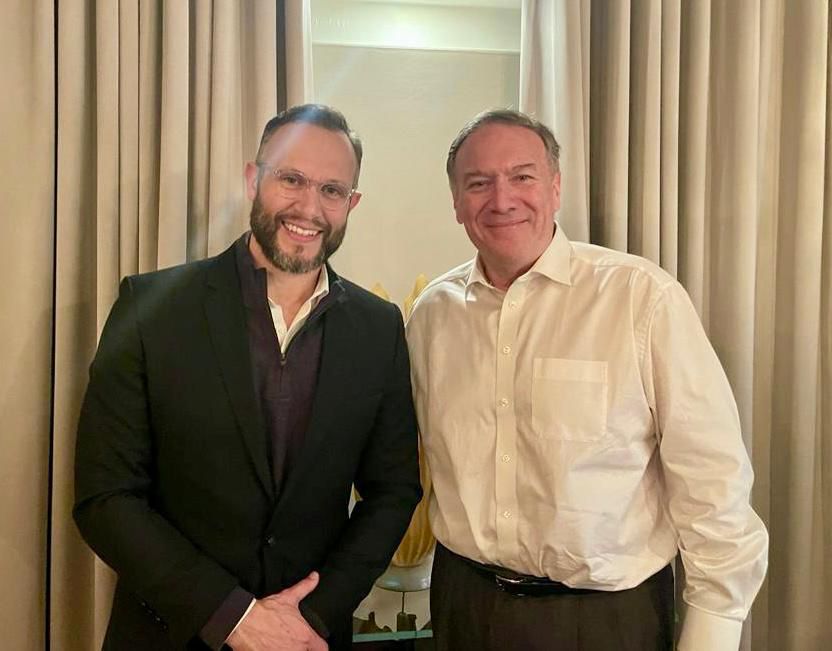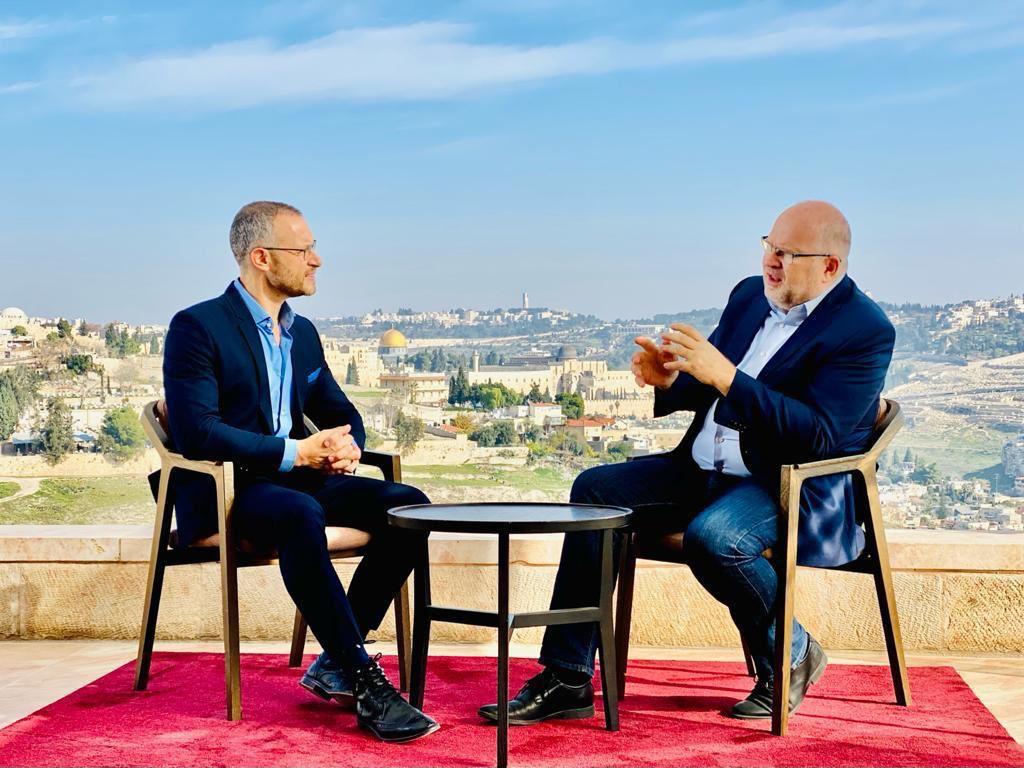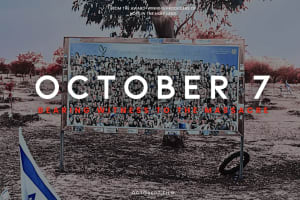‘Which Israeli political party will actively seek the vote of Israeli Christian Zionists?’ asks prominent Christian attorney in Jerusalem
This community of 80,000 mostly vote for center-right parties but have never been truly courted, notes Calev Myers – but they should be

JERUSALEM, ISRAEL – Calev Myers is a partner at Yehuda Raveh, one of the most prestigious and influential law firms in Israel.
Over the years, Myers – the son of a Jewish father and Christian mother, who told ALL ISRAEL NEWS that he sees himself as “a member of both the Jewish and Christian communities” – has come to represent the legal affairs of most of Christian business leaders and non-profit organizations operating in the Jewish state.
That has given him a unique vantage point to meet, build trust with and understand many Evangelical Christian and Messianic Jewish leaders and lay people in the land, both those who hold Israeli citizenship and those who come to visit, tour and invest here.
It has allowed him to observe that, so far, not a single Israeli political party has ever actively chosen to court this small but influential community.
Just before the Passover/Easter holidays, Myers wrote an op-ed for The Jerusalem Post that raised an intriguing and rarely asked question: Which politician or political party will be the first to actively court Christian Zionist Israelis?
Myers chose to use the term “Christian Zionist Israelis” to define this close-knit yet diverse community.
The electoral base of “Israeli citizens who define themselves both as followers of Jesus and as Zionists” crosses ethnic boundaries.
The community includes “a large portion of immigrants from the former USSR, those with a Jewish father and non-Jewish mother who identify as Christians,” he noted.
“It also includes a small portion of the Arab Christian community (including the Arameans who volunteer for military service), as well as some 30,000 citizens who identify as Messianic Jews.”
Combined, Myers estimates there are some 80,000 voting-age Israeli citizens who could be classified as Christian Zionists.
What’s more, Myers points out that this community is deeply-connected theologically and relationally to the vastly larger community of some 60 million Evangelical Christians in the United States, most of whom love Israel and the Jewish people.

And the 600 million Evangelical Christians worldwide, which is also strongly pro-Israel.
In his column, Myers noted that it took almost three months of protests by Israeli Jews to convince Prime Minister Benjamin “Bibi” Netanyahu to halt the judicial reforms being pursued by the coalition.
By contrast, it took only four days for his Christian friends to convince Netanyahu to kill a bill that would have criminalized talking about one’s religious beliefs with any Israeli of a different faith.
Myers asked what was different in those two cases.
The answer?
Netanyahu recognizes better than any other Israeli politician that “the vast majority of Zionists around the world are not Jewish.”
They’re Christian.
Perhaps no Israeli politician has done more than Netanyahu to build strong bridges to the global Christian community, encouraging Christian Zionists to help Israel fight anti-Semitism, fight the BDS movement, fight anti-Israel bias in the media, bring millions of tourists to Israel, invest financially in Israel, care for the poor and needy in Israel and provide political and others forms of tangible support to the Jewish state.
But Myers also highlighted a truth that is apparently obvious to Netanyahu, but has not been appreciated by many Israeli Jews, much less Members of the Knesset.
Evangelical Christians are indispensable to Israel’s successful international relations. Organizations such as Christians United for Israel, the International Fellowship of Christians and Jews, Bridges for Peace, theInternational Christian Embassy of Jerusalem, Christian Friends of Israel and the Institute for Black Solidarity with Israel – to name just a few – are all informed by their deep theological belief that the Bible commands them to support the nation of Israel.

There is a real opportunity, Myers argued, for an Israeli political party on the center-right to wake up and realize that they shouldn’t only be courting Christian Zionists in the U.S. and worldwide.
They should also be actively courting the 80,000 Israeli citizens who define themselves both as followers of Jesus and as Zionists.
These citizens do not represent a significant enough percentage of Israeli society to warrant forming their own political party.
However, Myers says that by actively courting their votes, even a relatively small Israeli party could conceivably pick up several additional – and critically important – Knesset seats.
Myers pointed to the example of Yad HaShmona, a community of Messianic Jews and Christians located near Jerusalem in the Judean Hills.
According to Myers, Benny Gantz’s National Unity Party attracted more of the community’s votes in the last election than Netanyahu’s Likud.
This can be attributed, to the fact that as a religious minority, they “deeply value the democratic nature of the Jewish state that protects their human rights, civil rights and religious freedoms,” he wrote.
“The community of Zionist Christian minorities in Israel definitely tends to be nationalistic and conservative, leaning to the right politically on issues of security, economy and traditional family values with a strong emphasis on bearing the burden of civil responsibility via significant IDF service, civic volunteerism and international pro-Israel advocacy,” Myers told ALL ISRAEL NEWS.
“From this perspective they have a lot in common with the Jewish Orthodox Zionist camp,” he said.
However, Myers added that most Israeli Christian Zionists have been unsettled by Netanyahu’s embrace of extreme right-wing religious factions, such as the Religious Zionism Party of Bezalel Smotrich, Itamar Ben Gvir’s Jewish Power Party, and the ultra-Orthodox parties that recently proposed legislation to ban any Israeli from discussing their religious convictions with fellow citizens.
Such parties are seen by many Israeli Christians essentially as a threat to Israeli democracy, civil liberties and economic growth.
Myers says the time has come for an Israeli politician to court those Zionists within Israel that call themselves followers of Jesus.
“Israeli Christians may be a relatively small percentage of Israeli citizens, yet they share common values and have a close strategic alliance with the vast majority of Zionists in the world,” Myers told ALL ISRAEL NEWS. “And in Israel’s current political reality, every single mandate makes an enormous difference.”
“In my opinion, the vote of Zionist Christian minorities in Israel is commonly neglected, yet very low hanging fruit,” he added. “So, in today’s political economy, where every single mandate is critical, it is merely a matter of time until some sensible political leader will decide to focus intentional efforts on garnering their vote.”
He admitted that this would take courage, saying, “Such a leader would need to be courageous enough to ignore, and endure, inevitable attacks from elements that promulgate ‘missionary phobias’ and other primitive anti-Christian prejudices within our political system, in order to build authentic collaboration with the community based on common values.”
Some members of the community doubt that any politician is currently willing to take that risk.
One resident of Yad HaShmona told ALL ISRAEL NEWS, “No politician is willing to be suicidal.”
Several other community members expressed similar doubts, with one saying that the political risk would be too great because “they will lose support from their base.”
Regardless of conventional wisdom, Myers may just be onto something.
There is little doubt that the current mass demonstrations regarding the proposed judicial reforms herald tectonic shifts in Israel's democracy, as new political alliances are being forged around issues of religion and state. It may only be a matter of time before Israeli Christian minorities are perceived by mainstream politicians as an electoral asset, rather than a public relations risk.

The All Israel News Staff is a team of journalists in Israel.














